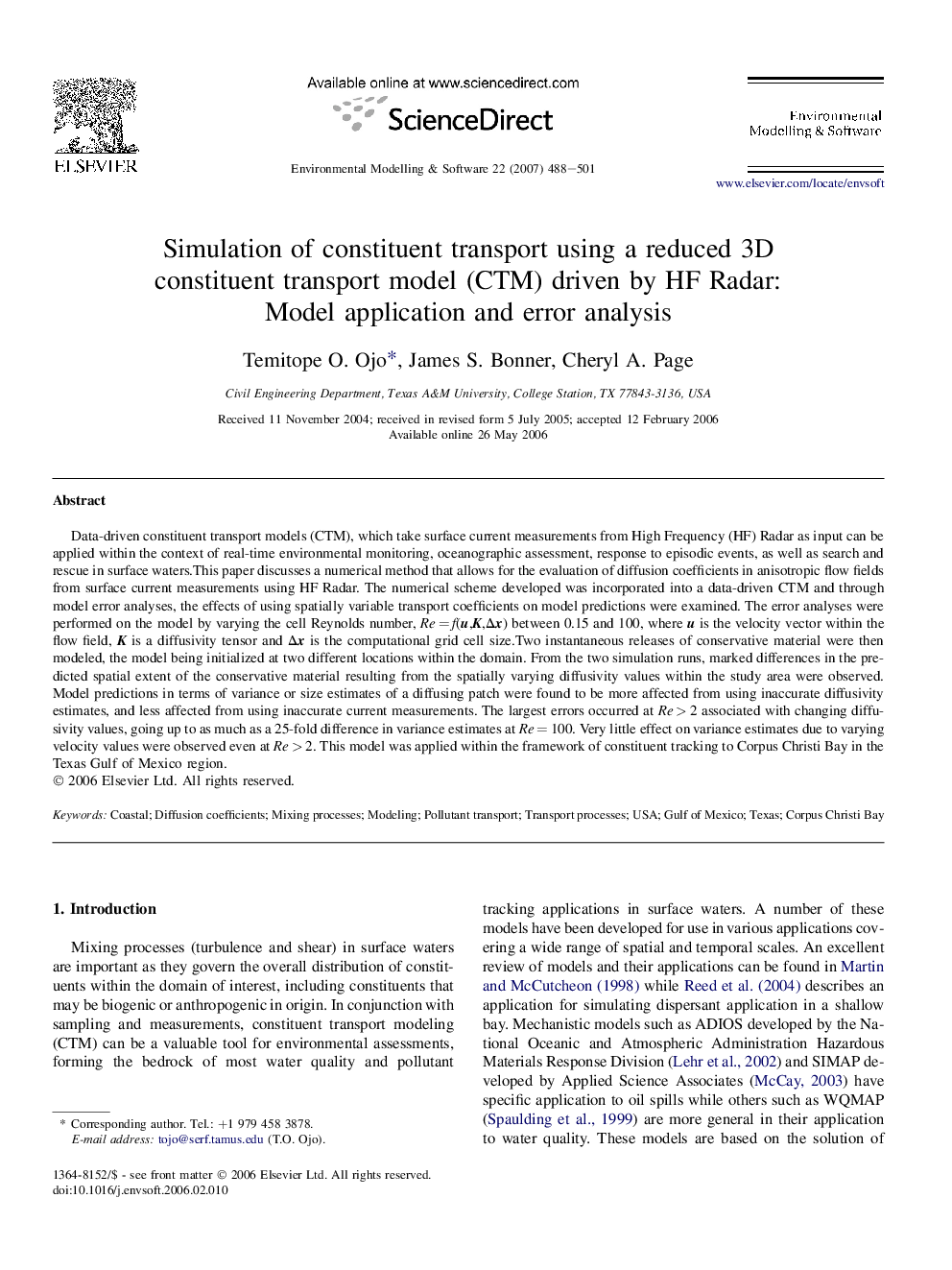| Article ID | Journal | Published Year | Pages | File Type |
|---|---|---|---|---|
| 569140 | Environmental Modelling & Software | 2007 | 14 Pages |
Data-driven constituent transport models (CTM), which take surface current measurements from High Frequency (HF) Radar as input can be applied within the context of real-time environmental monitoring, oceanographic assessment, response to episodic events, as well as search and rescue in surface waters.This paper discusses a numerical method that allows for the evaluation of diffusion coefficients in anisotropic flow fields from surface current measurements using HF Radar. The numerical scheme developed was incorporated into a data-driven CTM and through model error analyses, the effects of using spatially variable transport coefficients on model predictions were examined. The error analyses were performed on the model by varying the cell Reynolds number, Re = f(u,K,Δx) between 0.15 and 100, where u is the velocity vector within the flow field, K is a diffusivity tensor and Δx is the computational grid cell size.Two instantaneous releases of conservative material were then modeled, the model being initialized at two different locations within the domain. From the two simulation runs, marked differences in the predicted spatial extent of the conservative material resulting from the spatially varying diffusivity values within the study area were observed. Model predictions in terms of variance or size estimates of a diffusing patch were found to be more affected from using inaccurate diffusivity estimates, and less affected from using inaccurate current measurements. The largest errors occurred at Re > 2 associated with changing diffusivity values, going up to as much as a 25-fold difference in variance estimates at Re = 100. Very little effect on variance estimates due to varying velocity values were observed even at Re > 2. This model was applied within the framework of constituent tracking to Corpus Christi Bay in the Texas Gulf of Mexico region.
